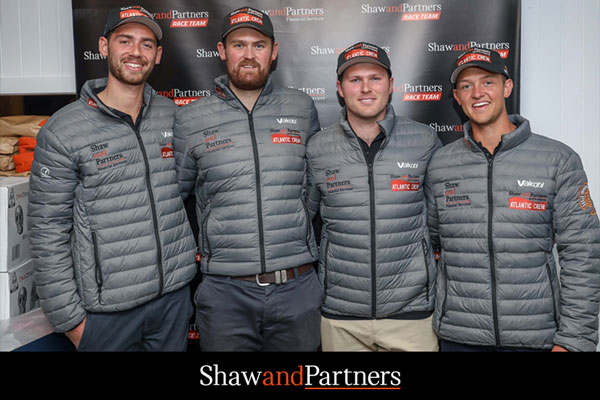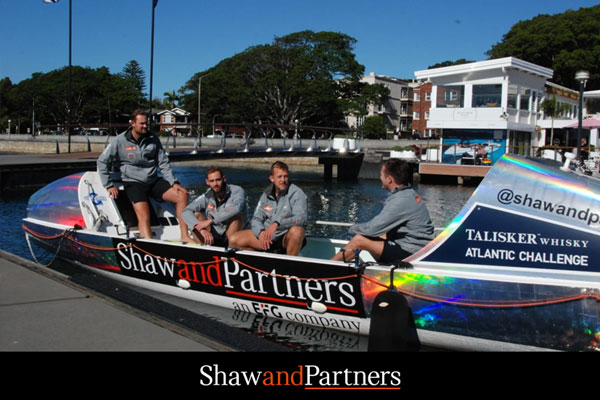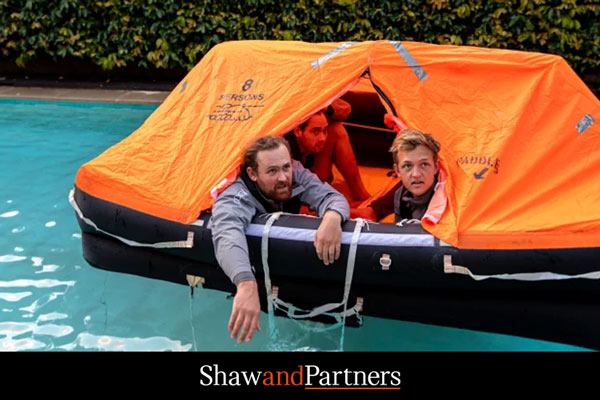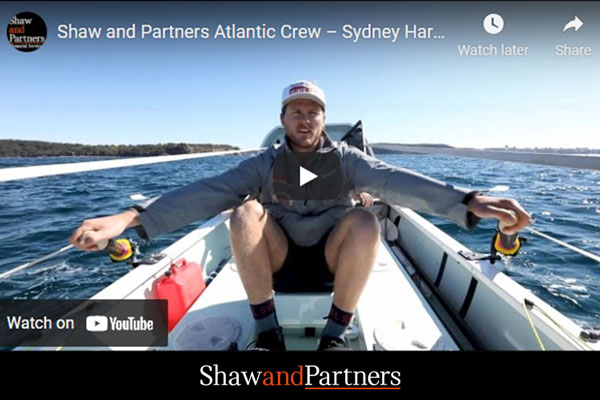Their biggest challenge is the test to their friendship, say the crew risking life and sanity to raise funds for mental health in a mad Atlantic dash.
It’s called the toughest annual ocean row in the world, a 5000-kilometre race across the Atlantic from the Spanish Canary Islands to the finish line at Nelson’s Dockyard in Antigua and Barbuda, against 35 other purpose-built vessels (some with just a solo rower aboard).
The only Australian team – comprising EY consultants Sam Horsley and Louis Hugh-Jones along with builder James Samuels and medical school graduate Rob Wells – are hoping to break the Australian record of 34 days, 10 hours and 46 minutes.
That was set two years ago by the crew of fellow Bondi-based adventurers aboard Rowed Less Travelled, who finished second in 2019 and have mentored the younger guys (average age 25) trying to take their record on what they can expect.
Sharks, obviously. Orcas, possibly.
Sores, blisters, sleep deprivation from the two hours rowing/two hours rest routine. Massive rolling waves and sea sickness, fuelled by storms outside the Atlantic’s official hurricane season.
 '
'
From left: Rob Wells, Sam Horsley, Louis Hugh-Jones and James Samuels.
Spending up to a month and a half with mates who you might have rowed with (and against) at school or at uni but this time on a self-righting boat slightly larger than that 4WD parked outside the supermarket?
And we haven’t even come to the lack of an onboard toilet.
“Marlins emerged as a big threat last year,” says Horsley, whose idea it was to enter this team. “Two boats were attacked. One marlin ended up sticking its spear-shaped snout through a hull, missing the guy who was sleeping in the cabin by 15 centimetres. If it had gone through his artery …”
Which begs a question. These four friends are raising money for preventive mental health charity Gotcha4Life, with a target of $500,000.
Yet is there anything less conducive to good mental health than spending a month aboard a tiny, wave-rolled vessel with three schoolmates, all missing their family and girlfriends?
Hugh-Jones was the driving force behind the choice of charity.
“I was fed up seeing friends in hospital for mental health problems,” he explains. “A friend took his life in high school. Another friend came to my door around 7am when I’d just got back from studying in the US. I knew he was in trouble, so I took him to the hospital.
“Mental health treatment has come a long way in Australia, but there’s still so much longer to go, especially with prevention, which is why we chose Gotcha4Life.”
Hugh-Jones, who, with Horsley, competed against past Olympians, future Olympians and European superstars at the University of California, Berkley, admits he has fears.

Having a confab in Rose Bay, Sydney. The biggest concern for the crew is ensuring they stay friends through the tough days.
“I know there will be big swells and rain that will keep us in our cabins for days. Our bums will be cut to pieces, our hands will shredded, we’ll have skin infections.
But what I fear most is how I’ll react out there. None of us has ever done a challenge like this before.”
Horsley, with the bravado of someone who hasn’t completed the race yet, feels the worst is behind them. “Nearly anyone can do this race,” he says. “It’s not the doing that is important, it is the committing to starting it. You don’t have to have rowed competitively since Year 7 as we all have, and you don’t need to consider yourself an elite adventurer.”

“The one thing that scares us is not being friends at the end of this. That’s our biggest challenge. A couple of crews have won and never spoken to each other again. We want to step off at the finishing line as friends. But we’ve seen ourselves when we’re tired and hungry. Even in training we’ve being getting antsy.”
It’s a sign of the times that the four mates are drawing up a kind of pre-nuptial agreement. Each will sign a mission statement.
“Imagine someone saying, ‘Let’s just drop oars and enjoy this pod of dolphins’,” explains Horsley. “While others say, ‘No! We have a chance of winning. Let’s keep rowing!’”
Now called the Talisker Whisky Atlantic Challenge, the race was created by British adventurer Sir Chay Blyth in 1997, but has become an annual event since 2015, with numbers growing each year.
The Australian team’s keenest competitors are likely to be the many crews representing armed forces, who probably won’t stop to admire the dolphins, or the moonlight, or just to gaze at the Atlantic mid-ocean.
The Australians’ boat, however, may give them an edge. Sponsored by Shaw and Partners and now on a container ship to the Canary Islands, it has already survived this race twice.
It has solar power, a desalinator, VHF radio, chart processor, a pre-programmed rudder, and satellite communications, meaning it is unlikely to run into a cruise ship or tanker.
What doesn’t it have? A cruise ship style en-suite.
“The toilet is the most asked question,” admits Hugh-Jones. “It’s just a bucket. Honestly, that’s the least of our worries.”
To donate and/or to follow the race, go to shawandpartnersatlantic.com
Article source: AFR, 21 October 2021
